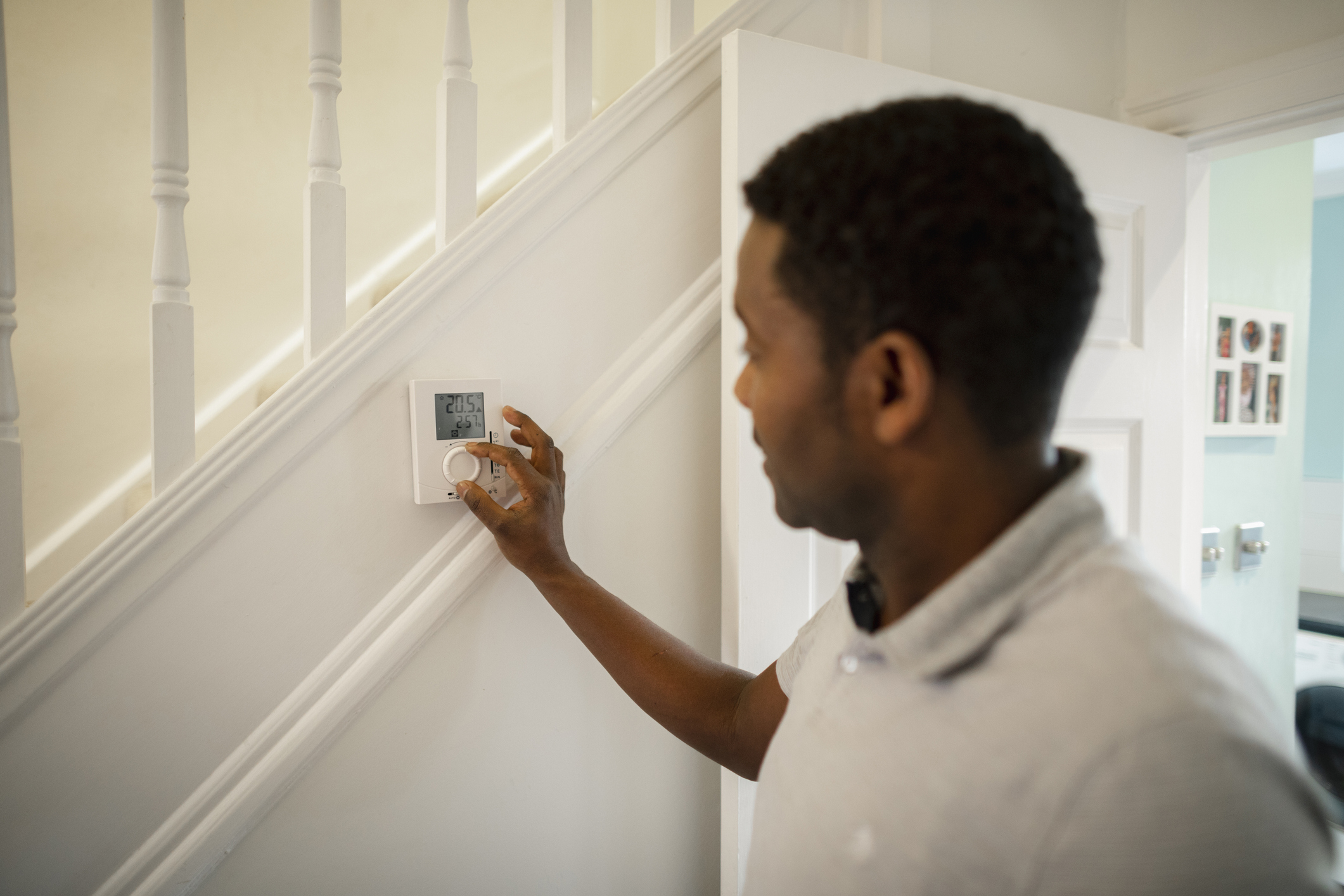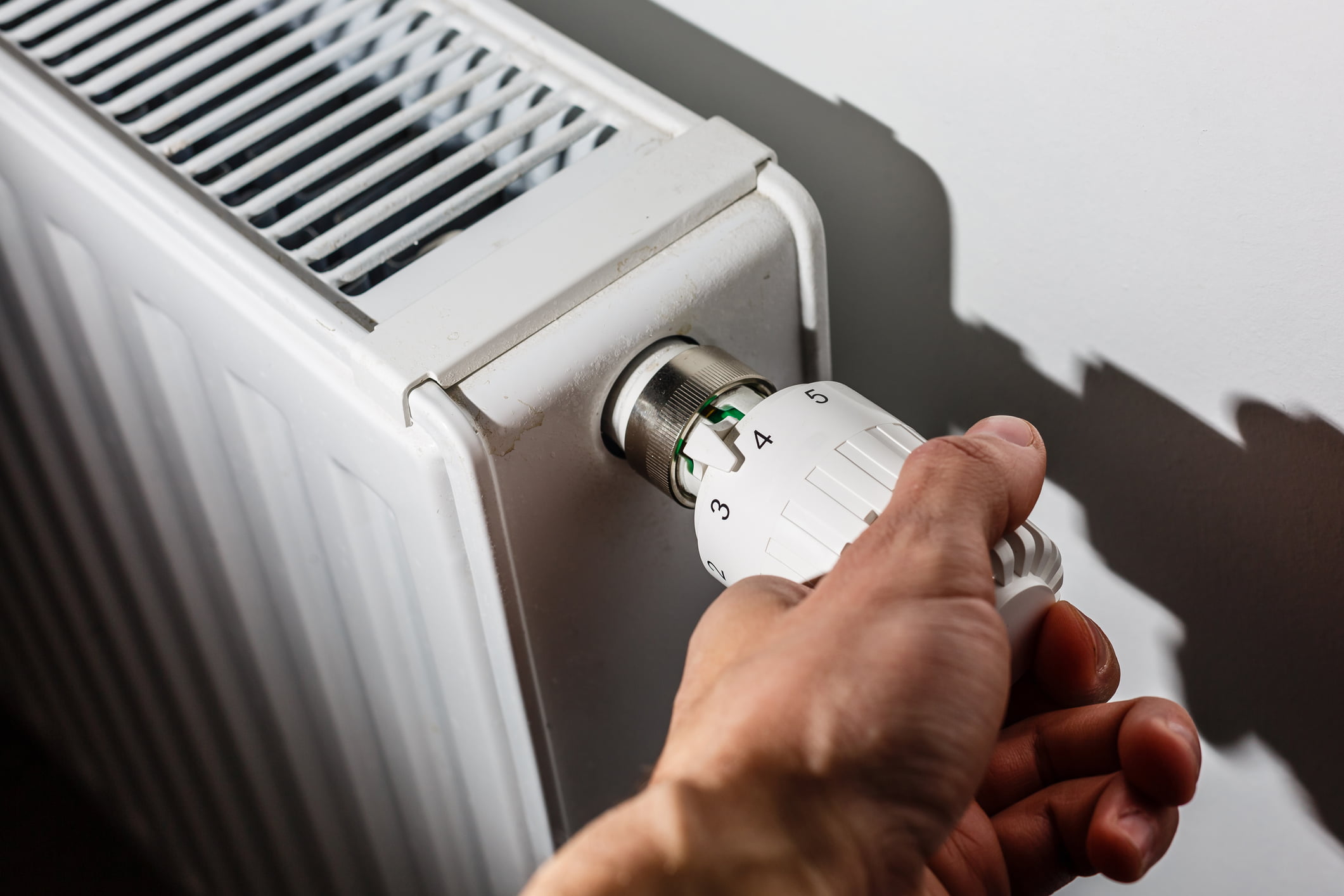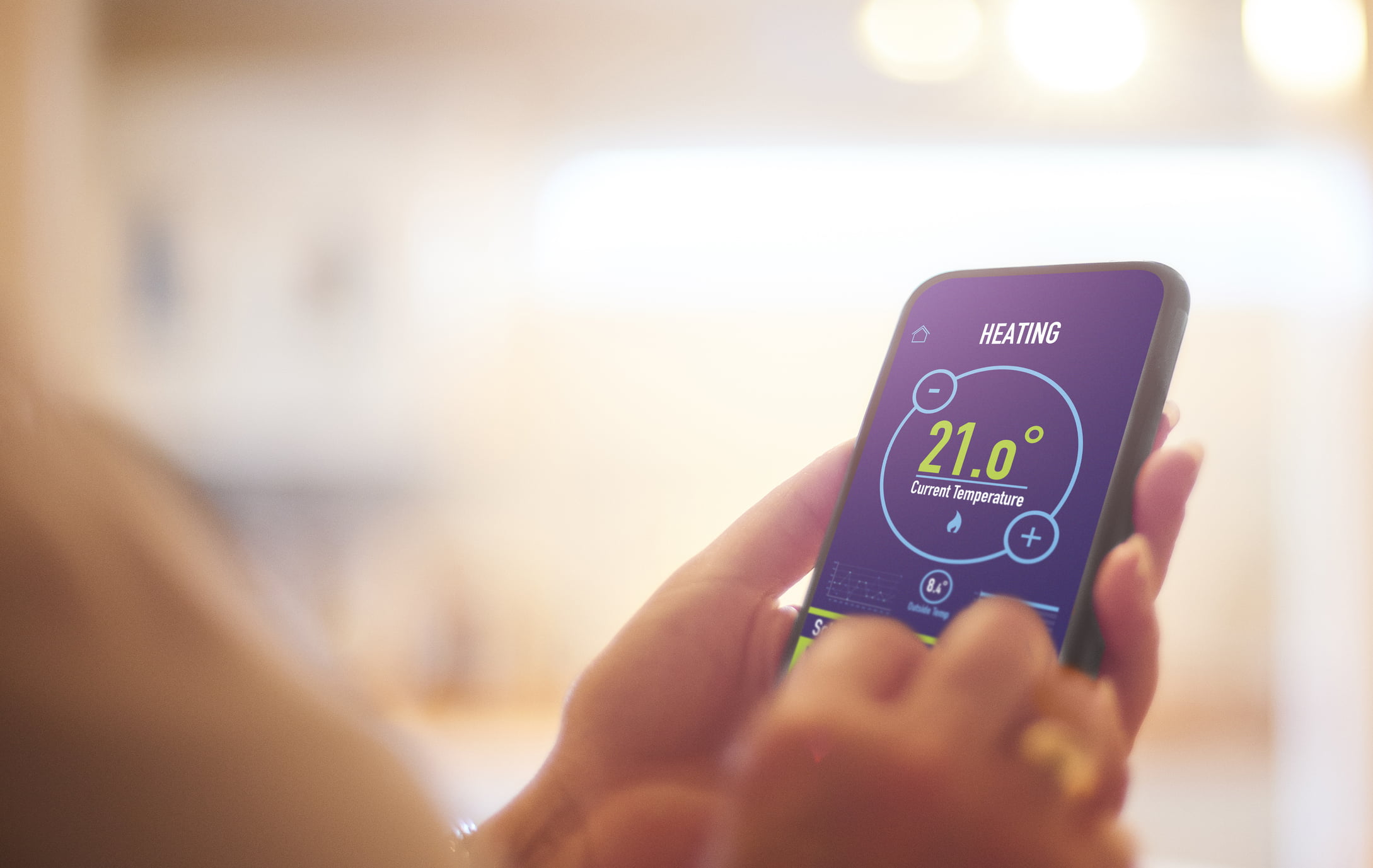A room thermostat prevents your heating system from using more fuel than it needs to. It will turn the heating on until the room reaches the temperature you have set and then off until the temperature drops below your programmed temperature.
The thermostat should be set to the lowest comfortable temperature, typically between 18°C and 21°C. You don’t need to turn your room thermostat up when it is colder outside; the house will heat up to the set temperature whatever the weather, however it may take a little longer on colder days. Turning up your room thermostat won’t make your home heat any faster.
Also, bear in mind that room thermostats need a free flow of air to sense the temperature, so make sure they’re not blocked by curtains or furniture, and keep them away from heat sources.


